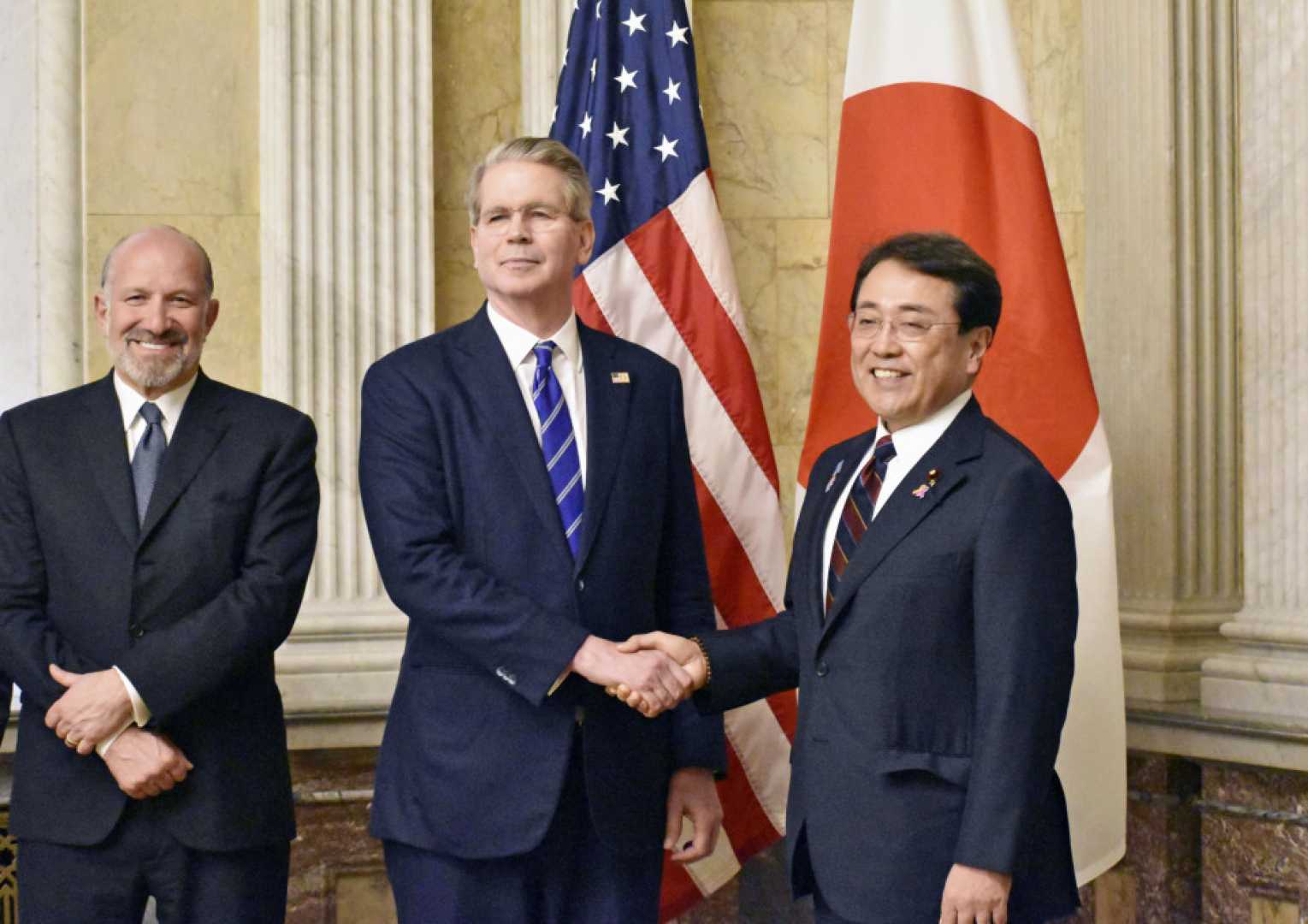Business
Japan, U.S. Make Progress in Trade Talks Ahead of G7 Summit

TOKYO, Japan – Japan is making strides in its fifth round of trade negotiations with U.S. officials, aiming to lift tariffs that are impacting the Japanese economy, according to Ryosei Akazawa, Tokyo‘s chief tariff negotiator.
During discussions held in Washington on June 6, Akazawa shared that current tariffs on autos, auto parts, steel, and aluminum have significantly affected Japan’s economy. “Tariffs have already been imposed on autos, auto parts, steel and aluminum, and some of them have doubled to 50% along with a 10% general tariff,” he stated. These tariffs have created daily losses for Japan.
The recent talks may represent the last in-person meetings prior to the Group of Seven (G7) leaders summit commencing June 15, where U.S. President Donald Trump and Japanese Prime Minister Shigeru Ishiba are expected to meet. Japan is also facing a looming 24% tariff rate starting in July unless a deal can be forged with Washington.
“We want an agreement as soon as possible. The G7 summit is on our radar, and if our leaders meet, we want to show what progress has been made,” Akazawa emphasized. He also noted the importance of balancing the urgency of negotiations with Japan’s national interests.
The Japanese negotiator did not disclose specific advancements but indicated that Japan’s position remains firm against the higher tariffs the U.S. administration has imposed. Akazawa’s statements follow a series of discussions focused on various trade aspects including nontariff barriers and economic security.
Additionally, Japan is proposing a mechanism to lower the auto tariff rate based on the contributions countries make to the U.S. automotive sector, according to reports. This proposal aims to benefit both nations while addressing the existing tariff dilemmas.
Next week, Akazawa is scheduled to return for additional discussions, contingent on the U.S. Cabinet’s schedule, which includes high-level trade talks with China. This period of negotiations is seen as critical as countries look to establish a balanced trade environment.
Japanese officials are hopeful that concrete progress can be announced before the G7 meeting, with various avenues of collaboration being examined, such as increasing U.S. agricultural imports and strengthening semiconductor supply chains.












